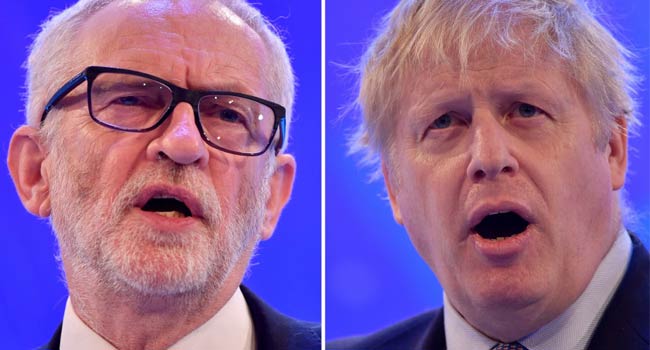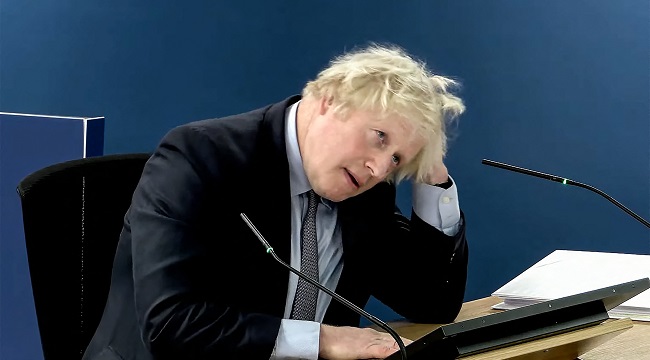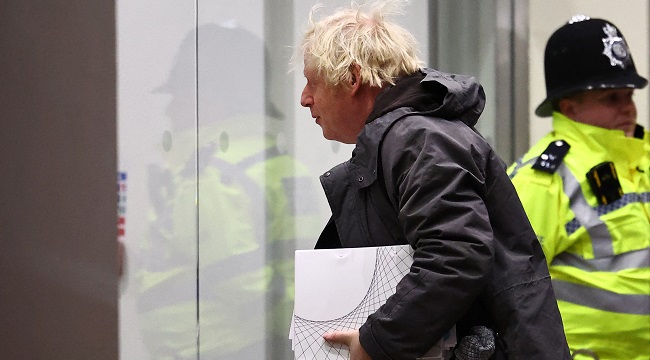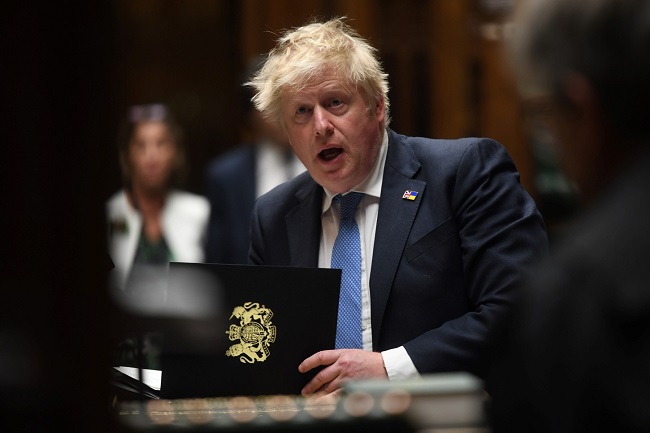
Britain’s Boris Johnson and Labour leader Jeremy Corbyn go head-to-head on Tuesday in their first TV debate of the election campaign, facing scrutiny over their plans for Brexit and more public spending.
Johnson, who took over as the leader of the governing Conservatives in July, has held a double-digit lead over Labour in opinion polls for weeks, making the December 12 election his to lose.
Corbyn meanwhile is seeking to repeat the success of the last election in 2017, when his promise to end austerity and deliver change “for the many, not the few” fired up voters and denied the Tories an outright win.
The two men have sparred only a handful of times in parliament, making the prime-time debate, broadcast on ITV television at 8:00 pm (2000 GMT), a rare opportunity to see how they engage up close.
Brexit vs inequality
Johnson fired the starting gun with a letter to Corbyn overnight questioning his plans for Britain’s looming departure from the European Union.
The Conservatives are campaigning on a pledge to “get Brexit done”, promising to end years of political disagreements and several delays by leaving the EU on January 31.
Corbyn says he will renegotiate Johnson’s exit deal and hold another referendum, appealing to around half of Britons who still oppose the result of the 2016 Brexit vote.
But the Labour leader has yet to say how he would campaign in that referendum, and Johnson warned in his letter that he offered only more “dither and delay”.
On a visit to a boxing gym near the northwestern city of Manchester on Tuesday, the premier sparred in the ring wearing gloves emblazoned with the words “Get Brexit Done” and said he was “excited” about the fight with Corbyn.
“Parliament is blocking Brexit, we need to get Brexit done so we can take forward our agenda for the whole country,” he told ITV television.
Labour meanwhile has sought to shift attention to inequality and the impact of a decade of Conservative spending cuts, promising a swathe of nationalisations and huge investment in public services.
Finance spokesman John McDonnell on Tuesday attacked the “obscene” disparities in workers’ pay and unveiled plans for a new ratio of 20:1 between the top and lowest earners in public sector firms.
He also announced proposals to transfer shares from large companies into an employee fund, and to break the hold of the “Big Four” major accountancy firms.
“We know whose side Boris Johnson is on — the billionaires, the bankers and big business,” he said.
Johnson warns that Labour would cripple the economy, although he has also promised more money for hospitals, schools and police, as well as infrastructure including broadband.
Small parties excluded
Johnson and Corbyn will answer questions submitted by viewers in front of a live audience, a format that had been challenged by smaller parties.
The Scottish National Party and the Liberal Democrats went to court to protest their exclusion from the debate, but High Court judges rejected their case on Monday.
Although the next prime minister is almost certainly going to be either Johnson or Corbyn, the role of smaller parties could be crucial.
The Conservatives failed to win a majority of MPs in 2017, forcing them to agree an alliance with Northern Ireland’s Democratic Unionist Party (DUP).
Their arrangement collapsed over rows over Brexit, leaving Johnson without the support he needed to get his EU exit deal ratified by parliament.
This time, he has faced a challenge from Nigel Farage’s hardline Brexit Party, although it has agreed not to field candidates in Tory-held seats.
Labour is languishing so far behind the Conservatives that polling expert John Curtice, from the University of Strathclyde in Glasgow, has suggested it has almost zero chance of winning a majority.
But he noted Corbyn could still take power at the head of a loose coalition involving the SNP and Lib Dems, both of whom strongly oppose Brexit.
AFP




